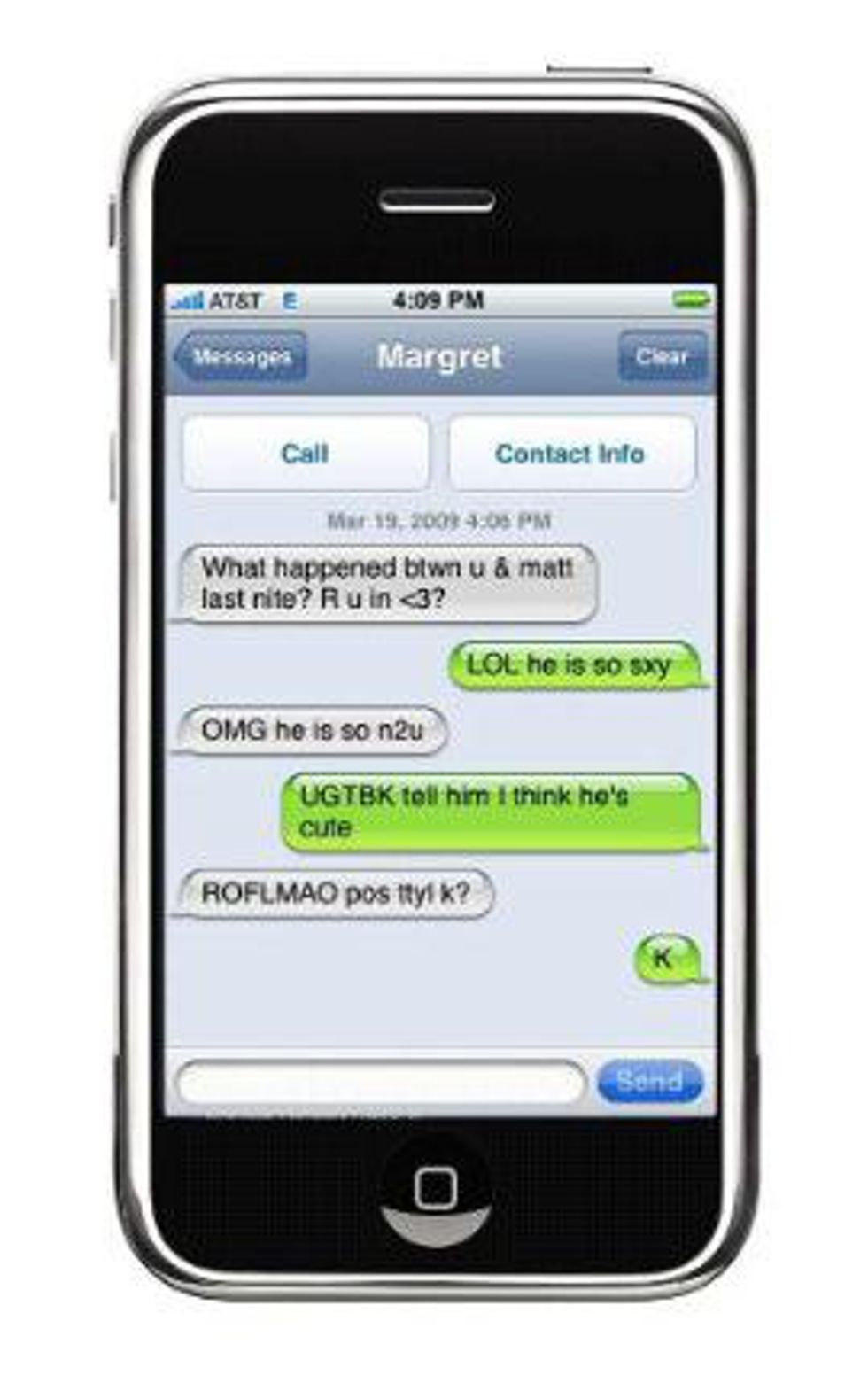It’s no doubt millennials have created their own internet language in recent years. I remember the first time someone sent me a text heart, otherwise known as less than 3 (<3), and I responded, “What?” This was in eighth grade, when I was still using my enV3 phone from Verizon, around the same time acronyms “omg” and “lol” came into existence.
Despite their seemingly useless place in the English language, internet words and grammar can be linguistically analyzed the same way real words and grammar are analyzed. For example, the reason people tend to read each letter in “omg” because it would sound like a completely different word if we pronounced it exactly as it was spelled; m and g aren't consonants that usually get paired together. On the other hand, for some reason, I do read "omfg" as a whole word, starting with a vowel and ending with a jumble of odd consonants: "ohmfg." I don't know why; perhaps because reading each individual letter is too overwhelming for my brain. Maybe because "omfg" is usually only used as a comment or reaction to something on the internet, I don't think to take the time to pronounce each letter, because it's not that important.
Eighth grade was also around the same time people started texting and writing Facebook posts with letters that changed from uppercase to lowercase, used the number 4 instead of the word “for,” an exclamation point or number 1 instead of the letter “i,” and the symbol @ instead of the word “at.” D0 u R3M3mb3r wH3n PPl us3D 2 taLK iN wEirD 4mAtZ liKE tHiiiiiis 4 XtrA emPhAziz??**//~~ lol. At first, I think this do-it-yourself text font that took way too long to configure was used as a way to emphasize whatever you were ranting about online at age 13. But as we all got older and we all suddenly became interested in making fun of ourselves through meme culture, it was used more to make something you were writing/ texting seem like a joke.

But internet language has become more complex. At least back then, non-millennials could try to decode WaT w3 w3R3 saY!nG, but Internet language has spread from spelling and formatting to grammar and syntax. There even seem to be Internet dialects, or at least different forms of language used on different websites; most people don’t write the same way on Tumblr as they do on Facebook and Twitter, because Tumblr is more informal and usually used more like a diary, whereas Facebook and Twitter are exposed to friends, family, your boss, and your fifth grade teacher.
For example, frequent users of informal websites can express themselves in fewer words because internet. Notice how I dropped “of the” in the last part of the previous sentence, which should read, “because of the Internet.” Another example might be, “I can’t go out tonight because homework.” The word “because” can be followed by both a finite and prepositional clause, but in this example, I use a noun after the word “because” to make a statement on something that does not need further explanation and that will be understood by my peers. Often times, the noun that follows “because” in cases like this are proper nouns. As Tumblr user allthingslinguistic states, “This isn’t a straight nonstandard equivalent to the other uses—it’s different. It means something like ‘I’m so busy being totally absorbed by X that I don’t need to explain further, and you should know about this because it’s a completely valid incredibly important thing to be doing’.”
Another popular Internet phrase is simply, “I can’t” or “I can’t even,” which is commonly used when people want to express from anything from excitement to dissatisfaction to embarrassment to an endearing reaction. People use “I can’t” as a way of saying, “I literally cannot even fathom my own feelings right now, but I want people to know how much this excites/ embarrasses/ displeases me. How can I accurately describe my feelings? I can’t.”
A new meme known as "me, an intellectual," was born sometime in 2016. One Tumblr user, however, wrote a text post that deemed the meme grammatically incorrect: "you: me, an intellectual; me: I, an intellectual." Those of you who understand this meme may be thinking, but why? "Me, an intellectual," sounds better in our heads, but which is actually corr Tumblr user, kirby-ebooks, responded to the post: "hi where the fuck do you think that fragment is getting nominative case. listen to me. subjects of transitive verbs in nom-acc languages get nominative case by agreeing with a tense node. are you listening. fragments are accusative in english because that’s the default case when there’s no case-assigning node. meet me in the pit behind the denny’s and i will explain this to you. bring a whiteboard."
Another popular form of expression through the Internet requires no words at all. In fact, emotigifs, or gifs and pictures that express a particular kind of emotion someone is trying to portray (i.e. that gif of Rihanna winking and twisting her hand, Steve Harvey having an existential crisis in the middle of “Family Feud,” Emma Stone blowing a kiss in “Easy A,” and so on). This post has a ton of examples. Sometimes these gifs are made with words, but other times, they are simply attached to a text post on Twitter, Tumblr, or more recently, Facebook. Extra capitalization and punctuation can be similarly used to express emotions like excitement (AHHH!!!!!!!) or confusion (.,/!+_??).
As The Daily Dot explains, “People from the midwestern United States say 'pop,' while people from the coasts say 'soda.' Southerners might say 'y’all' instead of 'you guys.' And people from the Internet say a lot, actually. Abbreviations like 'v important' or 'p cool' signify something that 'very important' and 'pretty cool' do not. The use of a ¯\_(ツ)_/¯ conveys something a bit more subtle than 'I don’t care,'" or even "idgaf." These are just a few examples of Internet linguistics, but it’s reassuring to know that these forms of expression really do have legitimate meanings, even if they’re difficult to decode, and there’s more to this language than laziness or a lack of understanding for English. Language develops over time, but maybe the Internet is speeding up that process for millennials, and this Internet dialect will only keep expanding.




























